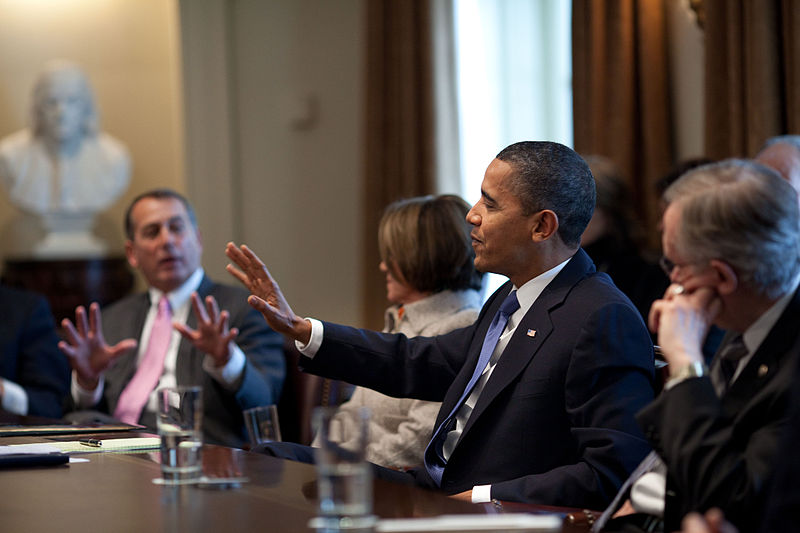
Much contemporary political discourse is of embarrassingly low quality. I do not consider myself qualified to make authoritative statements as to how long this has been the case, though my intuition suggests that the quality of the political conversation was not always so poor. The existence of documents like the Federalist Papers appears to confirm my hunch, as such documents provide evidence of a time in which statesmen and politicians systematically and publicly made thorough arguments for the policies they endorsed.
However, before I become too wistful, it is worth noting that people may exaggerate how much the quality of this conversation has recently deteriorated. Political discourse seems to always have been marked by its fair share of poor argumentation and inanities; some ruins from Pompeii bear graffiti that facetiously reads, “Vote for Lucius Popidius Sabinus; his grandmother worked hard for his last election and is pleased with the results.”
However, the fact that political dialogue has always been lacking in integrity is no reason to abandon the effort to improve it. We might still strive for a society in which the expectation is that one will argue well for the policies one endorses, that one will be largely consistent, that one may not dismiss opponents out of hand without providing a substantive reason.
Though it has been stated enough to have become a worn-out cliché, the low quality of political conversation today is at least partially due to a social norms that implicitly encourage it. There seems to be instant gratification in hearing someone with whom you agree caricature and laughingly dismiss those with whom you don’t. To consider and fairly represent an opponent, leverage thought-out criticism of their position and be open to counter-objections is often difficult. Nevertheless, such pursuits are rewarding and more often than not result in an increased understanding of the issue for both parties.
Yet the problem seems to extend further still. Oftentimes it appears that there is no “deeper” position to caricature. Too often, it appears that public figures do not take the time to formulate thought-out, internally consistent positions, but are satisfied at spitting out inane sound bites on a vague and generalized theme. Or perhaps I fail to comprehend the subtle nuances of, for example, Michelle Bachman’s political philosophy. Perhaps she does in fact have substantial, sound arguments underlying her claims. If such arguments do exist, they are not repeated often enough. It is exactly those arguments that should be the focus of a political conversation, not celebrity personalities and a constant refrain of “God Bless America”.
Nevertheless, it seems that most have chosen the route of instant gratification, and the political landscape reflects this. What passes for an argument is something to the effect of Bill O’Reilly calling someone a numbskull or Keith Olberman labeling someone the worst person in the world. Newspaper editorials, this article being no exception, are by their very nature instruments meant to deliver bold claims rather than thoughtful arguments (as 500 words are almost always insufficient to adequately consider any view). But this is amenable to a great many people. Processing these things requires less thought than substantive, considered argumentation.
How might these ills be repaired? Like so many of society’s problems, the straightforward answer seems to point towards education.
It should be stressed, from a young age, what the acceptable standards of argumentation are. It should be stressed that most arguments have a premise and a conclusion; given some premises, the objective is to make it clear that a particular conclusion follows. It should be stressed that one might combat such arguments in a number of ways, including a demonstration that a premise is false, that the conclusion does not indeed follow or that the argument also entails other, less desirable consequences.
It should be stressed that this is often not an easy or straightforward process, that in fact it can be exceedingly difficult or unclear. But it should also be stressed that such arguments are a powerful tool that can clearly elucidate almost any issue and that can increase the knowledge of those who employ them.
With such standards in mind, current political discourse is like a sad joke, containing almost no such explicit argumentation, at least not on the public stage.


